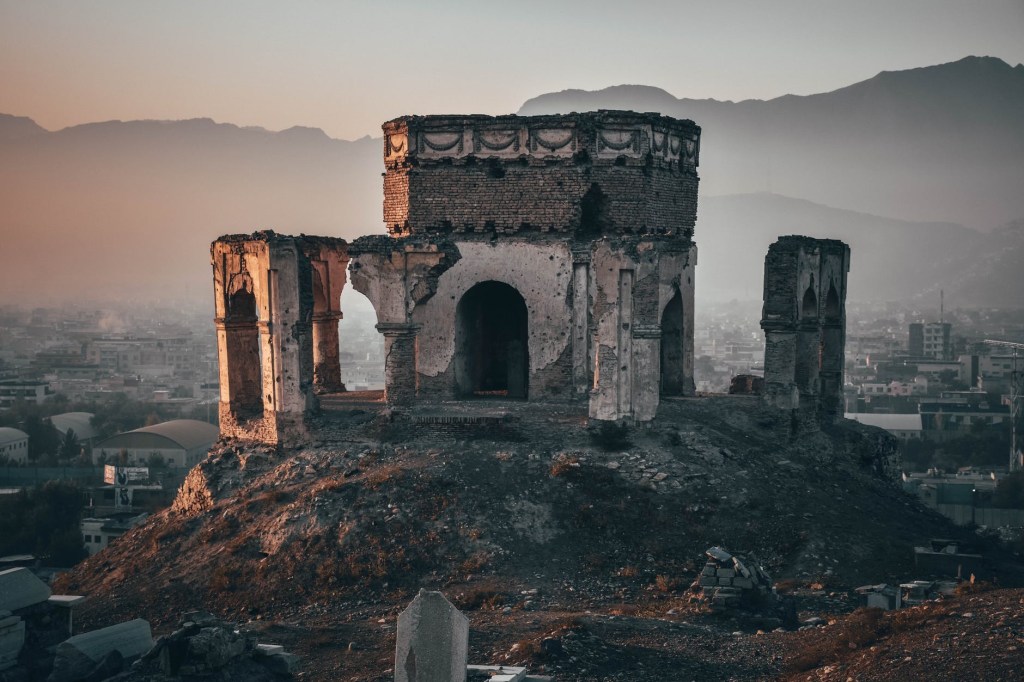Last weekend in the supermarket, as I stood in queue of five people waiting to pay, the woman in front of me became visibly agitated. She began to offer advice to everyone on how they could complete their shopping faster. When she reached the front of the queue she was furious with the staff that she had been held up and demanded they fix the queue that had formed. All in all her experience from agitation to being served took less than five minutes.

When the simple act of queuing briefly gives rise to anger and frustration, I begin to wonder if this pandemic has not caused deeper and more longstanding damage. This experience is replicated in so many contexts – the rudeness of drivers on the road, anxieties and frustrations in the workplace, fights and anger in families and relationships. There are so many stories of friendships lost and dissatisfaction with work is on the rise. So many people report feelings of exhaustion. The fatigue we experienced a year ago has begun to surface agin in the form of a deeper and wider damage.
I hugged her, and I said We were scared, weren’t we?
and she nodded and we laughed.
Jill McDonough, Accident, Mass Ave
The longer we live with Covid 19 in our communities, the clearer it becomes that it has enduring health consequences. Long Covid is incredibly prevalent and damaging health and wellness. But beyond the physical impacts of this viral infection is the damage done socially and psychologically by our personal and public efforts to protect our health. These latter actions have undoubtedly saved lives and will continue to do so. Yet they are not without consequences on our relationships, our lives and our mental health. Only by examining these carefully can we support ourselves and others forward.
So many of the everyday rituals of 2019 have been disrupted – radically and permanently. We can all cite the obvious changes of increased work from home, the businesses that closed in our cities and the ongoing public health activities like masks and distancing. What we reflect on less often are the other changes that came along with the pandemic response.
These include:
- The lost lunches, coffees, drinks and casual work and friend conversations because we don’t share a working precinct
- The lost context that comes from casual chatter, higher bandwidth communication, proximity and observation
- The transactional nature of high velocity digitally mediated communications which mean the loss of relationship development and trust building
- The volume of interruptions, distractions, misapprehensions, conspiracies, and overreactions circulating in our digital environments
- The lost pauses, transitions, and rituals of physical movement, gathering and community
These impacts and more flow through to our worldview, our sense of self, our mental health and our daily interactions with others. Too many people I know are struggling with the feeling that the problems of the world are on their shoulders. Overwhelming anxiety is widespread. Sadly, some feel that they have no support or nobody to whole they can turn given all the pressures and isolation we experience.
I look for omens everywhere, because they are everywhere
to be found. They come to me like strays, like the damaged,
something that could know better, and should, therefore—but does not:
a form of faith, you’ve said.
Carl Phillips, Custom

If we are to remedy the damage, we need to begin by acknowledging it. Digital Utopianism is not enough for us now. Equally, we cannot pretend the pandemic is over and return to as before. We must start with a stocktake of our gains and losses before we consider what next. This stocktake should include consideration of our emotional, social, mental, and relational health.
When we can see where we, our families, our friends, and our organisations stand, we can start to make the changes that will remedy the damage done. Those changes will include:
- Focusing on the building of shared community with those isolated or disconnected
- Re-establishing shared context through conversation, storytelling and the osmosis of shared experiences
- Repairing relationships that are worth repairing through restoring them their priority, time, and care
- Grieving those relationships that will not come back and eventually accepting those losses
- Engaging ourselves again the world as presented to us here and now, letting go of the dreams, wishes and desires that are frustrated and resting those for these new times.
- Overcoming alienation by re-engaging with our purpose, our agency and the value of our efforts
- Developing new routines, rituals and events that reinforce our new world and relationships
Most important of all is that we don’t need to go through these changes alone. Our digital modern post-pandemic lives may at times be isolating and alienating, but together we will support each other to better lives. In friends, family, colleagues and community is the comfort for any injuries we may carry. Healing is as much a social as it is a personal process in this context.
Please keep ripping up the words.
Please don’t need anything from me.
Joy Katz, December Fever
What a great post Simon and one in which I resonate strongly.
I see the same behaviours (and feel the same) in my daily life and know that something in me has just “shifted” thanks to the last couple of years. It seems like everything has been made “visible” and you cannot ‘unsee’ it now.
People are definitely affected by something. I say ‘something’ because I cannot describe it – I can feel it.
Who knows maybe we are in a middle of a new renaissance but I have no idea how it will pan out. I’m not liking what I’m seeing at the moment though and in some way, I have ‘mentally checked out’ too for my sanity. I’m playing the game, going through the motions. I’m there but I’m not there.
I think we all need some nurturing and returning to the basics of what it is to be human. Less isolation, more meaningful connections.
Thanks Helen. Nurturing is the key. Nurturing ourselves, our potential and our relationships.